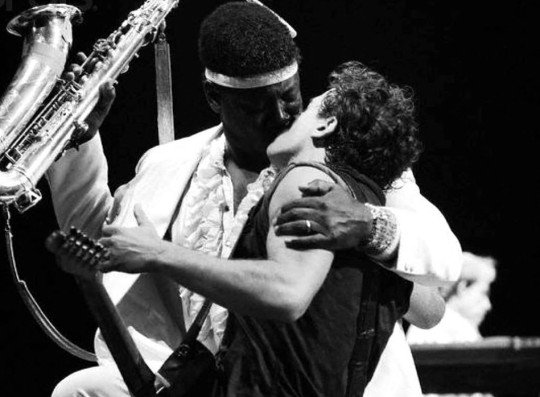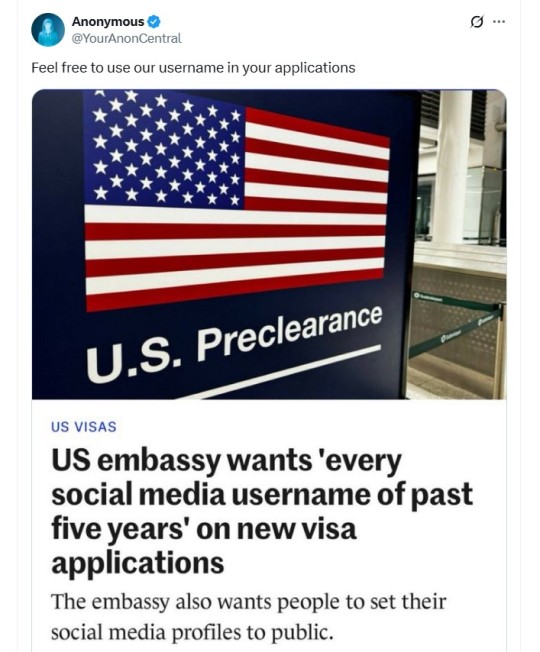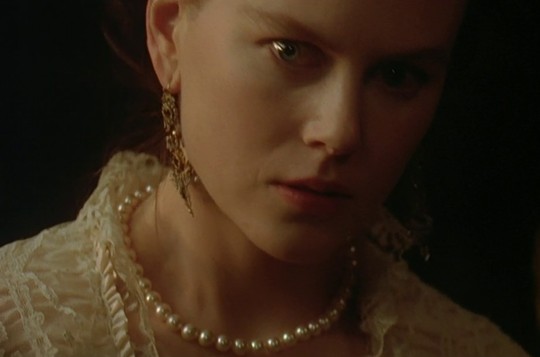Text
Bruce Springsteen, Florida: 'You can get killed just for living In your American skin. 41 shots… got my boots caked in this mud. We’re baptized in these waters and in each other’s blood.'
Ethel Cain, the South: "Too much has happened on this land to not be dark and terrifying, even years later. It’s like the ground is soaked in blood and the trees have drunk it up. It’s not about creatures or monsters. It’s just the real bleakness and darkness of the human condition." (Ethel Cain’s guide to the Southern Gothic, THE FACE MAGAZINE)
youtube
Live in Tampa, FLORIDA, 03/23/12
"American Skin (41 Shots)"
41 shots.... and we’ll take that ride ‘cross this bloody river to the other side 41 shots… cut through the night You’re kneeling over his body in the vestibule Praying for his life
Is it a gun, is it a knife Is it a wallet, this is your life It ain’t no secret It ain’t no secret No secret my friend You can get killed just for living In your American skin
41 shots Laina gets her son ready for school She says “on these streets, Charles You’ve got to understand the rules If an officer stops you Promise you’ll always be polite, that you’ll never ever run away Promise Mama you’ll keep your hands in sight”
Is it a gun, is it a knife Is it a wallet, this is your life It ain’t no secret It ain’t no secret No secret my friend You can get killed just for living In your American skin
Is it a gun, is it a knife Is it in your heart, is it in your eyes It ain’t no secret
41 shots… and we’ll take that ride ‘Cross this bloody river To the other side 41 shots… got my boots caked in this mud We’re baptized in these waters and in each other’s blood
Is it a gun, is it a knife Is it a wallet, this is your life It ain’t no secret It ain’t no secret No secret my friend You can get killed just for living In your American skin
BRUCE SPRINGSTEEN
Dave Marsh: "Then “41 Shots” rang out... The American abyss":
. . .
#bruce springsteen#ethel cain#america#mothercain#florida#ethelcain#springsteen#us politics#antiracism#black lives matter#black people#southern gothic#sharp objects#music#songwriting#darkness#musician#artist#american dream#southern#americana#southern americana#singer#Youtube
4 notes
·
View notes
Text
Bruce Springsteen: “But I grew up and I didn’t want to be just like that no more.”
'Despair was a familiar companion in his recent songs, but dark portents were always overwhelmed: “It ain’t no sin to be glad you’re alive.”'
Bruce Springsteen: “But I grew up and I didn’t want to be just like that no more.”
"In the time of punk and disco, however, Bruce’s music not only seemed to be a throwback; in some important ways it really was one. It could be argued, on the evidence of his rockabilly rhythms and persistent optimism, that he hadn’t a radical bone in his body and perhaps far too many conservative ones. Yet in another way, he represented the most radical of all threats to the juvenile hegemony within rock and roll.
He represented the idea that performers and audiences could grow up, assume adult responsibility, and tackle serious themes, without abandoning rock and roll’s kernel of joy.
As a prototypical all-American boy, Bruce Springsteen had learned that might and main and sparks of invention could carry you much farther than rationalists and cynics ever dreamed. His show was the most outstanding example of the efficacy of sheer will in modern popular culture, yet it was the product of more than hard work and raw talent, too.
His entire career was a triumph of conviction over trendiness and, more important, of content over form, reversing the typical priorities of contemporary artists.
His songs lacked disco’s total devotion to groove and the impudent purity of punk, not because he rejected either form of music (he wrote a song for Donna Summer, loved the Clash) but because Bruce Springsteen, all but alone among post-Beatles pop singers, seemed immune to nihilism.
Despair was a familiar companion in his recent songs, but dark portents were always overwhelmed, if not dispelled, by cascading affirmations of the tenet succinctly summarized in “Badlands”:
“It ain’t no sin to be glad you’re alive.”"
Dave Marsh: Bruce Springsteen
21 notes
·
View notes
Text
"Bruce Springsteen was sensitive to the issue; it was disturbing, not ironic, to see exclusively white faces at a concert that was so concerned with injustice and inequity in America (a nation more than a third black and Hispanic)."
"As Baker pointed out, “The one last frontier Bruce has is obviously black people. I heard someone say that he had more black people on stage than in his audience.” The exaggeration was very slight. Baker felt he not only knew the reason, he had the cure. “It’s not like these people will come out in droves and flocks and be into Bruce, but he should realize that all these people are missing what he has to say because they can’t relate to the music. Prince and all these other acts that are black but are doing rock and roll, they just know that they can relate to everybody. It isn’t even a matter of selling more records, because once you’re selling five million, what’s the difference? It’s just that it would be cool if black people knew Springsteen like white people know Prince.”
As a good American populist, Springsteen was sensitive to the issue; it was disturbing, not ironic, to see exclusively white faces at a concert that was so concerned with injustice and inequity in America (a nation more than a third black and Hispanic).
But populism by itself provided no solution, especially given the basic economic inequality that made even the Jacksons’ tour—which presented itself as a triumph for black Americans, in that one of their own had become the world’s single most popular entertainer—play to a crowd about ninety percent white.
But it wasn’t just high ticket prices and low minority incomes that kept blacks away from Bruce Springsteen’s shows and prevented that community from exhibiting much interest in his records. Nor was it skin color per se: Daryl Hall and John Oates, Boy George of Culture Club, and many other white singers were extremely popular with black audiences.
The real dividing line was Springsteen’s nervous aversion to syncopation, which he conscientiously avoided. It was hard to figure out why—whether Bruce feared some innate lack of ability in dealing with rhythmic nuance beyond a basic backbeat or whether years of trying to whip a band of white boys into shape to play with some semblance of soul had simply led him astray.
If Springsteen had been more of a typical singer-songwriter, if the root of his music had been commercial folk music or even British rock, the lack of appeal would have been no surprise. But the basis of his music was soul, and in spirit, it was meant to be all-encompassing, so the lily-white composition of his crowd was a little frustrating and embarrassing."
Dave Marsh: Bruce Springsteen
Video: Bruce Springsteen and Clarence Clemons 'Big Man': Jungleland, Live in New York City.
. . .
. . . Barack Obama and Bruce Springsteen:
#bruce springsteen#springsteen#black people#clarence clemons#ethel cain#mothercain#barack obama#black americans#black america#white america#donald trump#us politics#america#antiracism#black lives matter#songwriting#music#american dream#musician#singer#people#audience#artist#jungleland
5 notes
·
View notes
Text
"Bruce Springsteen never had much of a black audience, although his band has always been integrated. But sometimes, when it turns out that Springsteen doesn’t share the ever more reactionary white American perspective, big trouble looms." (Dave Marsh)

Bruce Springsteen and Clarence Clemons 'Big Man'
Dave Marsh, Bruce Springsteen: "His records and shows emphasize melody and a steady beat, not fractured harmonies and polyrhythms. The changes in popular music during his career have complicated all this.
Hip-hop dominates today’s popular music. It functions similarly to rock ‘n’ roll of the 1950s and 1960s, in part by dividing listeners into camps based, in significant measure, on how open to African-American signifiers they are. Hip-hop tore the cover off the central limitations of Western music, including rock ‘n’ roll: its refusal or inability to incorporate polyrhythms and its exaltation of melody and harmony over the power of beat.
Bruce never had much of a black audience, although his band has always been integrated. More important, he draws on a musical history developed primarily among African Americans, he sings more often than not in a voice derived from blues, R&B, soul and gospel, and he never backs away from racially charged topics.
He lacks that black audience because, as a friend of mine put it, “The bottom of his music is never gonna be as interesting as the top of it,” meaning his drum and bass lines stick to one rhythmic pattern per song (or section of a song). Compared to hip-hop, this seems not so much primitive as dull, which is an important part of why Bruce, along with other stars of rock’s dominant period, has lost the attention of young Americans.
It’s also why he’s retained the interest of some pretty conservative people—New York City cops, for instance—long after he made it clear that his politics ran in the other direction.
Willful misreadings of Springsteen’s lyrics and actions range from Reagan’s attempt to expropriate “Born in the U.S.A.” to the safe, predictable interpretations (truly, emasculations) that appear in the few surviving publications that identify themselves as “liberal.”
Springsteen’s worked very hard to make his political, as opposed to moral, convictions opaque, and so most of what has been said and written about him and expropriated from him represents less what his work contains than the playing out of a process in which people hear what they want to hear.
Springsteen intends to empower his audience, teach them to make up their own minds, not tell them what to think.
But sometimes, when it turns out that Springsteen doesn’t share the ever more reactionary white American perspective, big trouble looms.
I’ve never been so frightened at a public event as that night in June 2000 when Bruce and the E Street Band first performed “41 Shots” his song inspired by the police shooting Amadou Diallo, at Madison Square Garden in New York City. In the wake of a single live performance of the song (in Atlanta a week earlier), the police unions and Rudy Giuliani, the city’s law’n’order mayor, attacked Springsteen. They declared that, since the cops who shot Diallo had been acquitted—by a jury many miles from where the crime happened— further public comment was out of order.
A police union spokesman capped the whole controversy by calling Bruce “a floating fag” (a term that remains undefined, despite diligent research). The “floating fag” comment showed up the controversy for what it was: an attempt to cut off any dialogue about what had happened since Giuliani had turned the city’s dark streets over to cops on “stop and search” missions. The bullying wasn’t going to work, since everyone knew he’d sing the song. When your opponents are armed and angry, just singing the song takes some guts. And that night, with Diallo’s parents seated just to stage left, the Garden felt close to the edge of real violence. As I remember it, that night Springsteen opened with a new song, “Code of Silence,” whose lyrics—portraying a love relationship where communication had suffered a total breakdown—metaphorically addressed the cops’ objections.
Then “41 Shots” rang out, a stunning arrangement, particularly if you’d only read the lyrics or heard the bootleg live dubs on the Internet (the song remained not only unreleased but unrecorded). The band sang as if in mourning. This wasn’t a flip attack on the police—the lyrics weren’t even unsympathetic to the cops, suggesting that they made an honest mistake. “41 Shots” had a subtitle, “American Skin,” and that’s what it tackled—the reality of race, the truth that all of us fear one another and that it gets some of us killed, and that it’s people with the “wrong” skin who do almost all of the dying. Springsteen has walked the edges of despair in a lot of his songs. Here, it was impossible to see how he maintained his equilibrium, for what he skirted was the American abyss. “Is it a gun? Is it a knife?” he asked. “Is it in your heart? Is it in your eyes?” The Garden didn’t get so still you could hear a pin drop. For one thing, the song grew loud. He argued back with just his voice and his band, and this gave him an indomitable dignity. Still, it felt like someone might try to hurt Springsteen, and I thought I knew who. In front of me sat a cop hurling furious threats and belligerent curses.
But as soon as “41 Shots” ended, the cop wound up cheering just as loud as everyone else for the songs that followed. Maybe he’d forgotten his need to ban Springsteen’s heretical thoughts; maybe he wasn’t even a cop; maybe he just got carried away. You could understand the guy’s sense of betrayal, though. Springsteen turned out not to be the guy in his fantasy."
youtube
Bruce Springsteen & The E Street Band - American Skin (41 Shots) (Live in New York City)
. . .
Bruce Springsteen: "I'm talking about the minister of soul, secretary of the brotherhood. Do I have to say his name? No. Do I have to say his name? No. Say who? Clarence. Say who? Clarence. … Say it again! … Say amen, somebody!"
#bruce springsteen#songwriting#antiracism#springsteen#ethel cain#black people#black lives matter#music#america#us politics#donald trump#american dream#black liberation#clarence clemons#big man#brotherhood#brothers#brother#audience#people
13 notes
·
View notes
Text
4th of July, in Donald Trump’s America (Sandy Weeps)
Multiple Countries Just Issued Travel Warnings for the U.S.


"For years, the U.S. has issued cautionary travel advisories to citizens heading overseas. But in a surprising twist, the roles have flipped. Several countries, including longtime allies like Australia, Canada, and the U.K., are now warning their citizens about traveling to the United States, according to Yahoo."
youtube
Bruce Springsteen: 4th Of July, Asbury Park (Sandy)
#4th of july#america#bruce springsteen#donald trump#american dream#springsteen#independence day#usa#us politics#trump#music#songwriting#fourth of july#july 4th#Youtube
12 notes
·
View notes
Text
David Lynch: 'We don’t realize how vast the mind is. It’s a beautiful place, but sometimes, it can be completely dark.'
David Lynch: "Every human being embarks on a search at some point and says to themselves: "There must be something greater. It's like a mystery—I know it's there." …
A road is an advance into the unknown, and that's what fascinates me. It's also the definition of cinema—the lights go out, the curtain opens, and we're off, not knowing where we're headed. Mulholland Drive is a mysterious road, full of twists and turns. It’s really dark at night and has remained unchanged for years. …
You’re somewhere, having a good time, and someone says something—suddenly, horror creeps in. You catch a glimpse of a gun handle sticking out of a pocket, and everything changes completely. You think things are one way, then something happens, and you see them differently—you have to deal with it. Those are the things I love the most. …
I love things that contain the seed of other things within them. They need to be abstract. The more concrete they are, the less chance that seed has to exist. Abstractions are very important in a film, but very few people really get to go all the way with them in cinema. …
Sometimes, you have to go in different directions to find your way. Our mind is such a friend to us that it denies certain things. But there’s a price to pay. We don’t realize how vast the mind is. It’s a beautiful place, but sometimes, it can be completely dark. I sometimes have ideas that come into my head and drive me crazy. I don’t know where they come from or what purpose they serve.
You can't make a film where everyone just tells nice little stories while knitting."
—David Lynch, Interviews with Chris Rodley (translated from French)

...
Ethel Cain:
20 notes
·
View notes
Text

"A girl working as a simple saleswoman in a department store, while also practicing photography on the side. At first, she only photographs urban landscapes or her own shadow. She is unable to photograph others, to confront their gaze. It is through her romantic relationship with Carol that she manages to connect with her own emotions, accept them, and turn them into a strength that she expresses through her camera. As their relationship deepens and Carol grows attached to Therese, the story shifts to her perspective, culminating in her gaze at the moment she is about to lose Therese."
Ed Lachman (cinematographer): Carol (Todd Haynes), Rooney Mara, Cate Blanchett
11 notes
·
View notes
Text
David Lynch: "It was a time full of hope [the 1950s]. Then all the luster disappeared, everything rotted, it started to seep."
Carol, Todd Haynes Rooney Mara, Cate Blanchett
Music: Carol: Original Motion Picture Soundtrack by Carter Burwell
3 notes
·
View notes
Text
1984, by Donald Trump

"Visa applicants are required to list all social media usernames or handles of every platform they have used from the last 5 years on the DS-160 visa application form. Applicants certify that the information in their visa application is true and correct before they sign and submit. Omitting social media information could lead to visa denial and ineligibility for future visas."

#donald trump#freedom#american dream#social media#1984#us politics#america#1984 book#us visas#nineteen eighty four
19 notes
·
View notes
Text
Norwegian tourist, 21, refused entry to U.S. and deported after ICE finds JD Vance meme on phone

ICE detained a Norwegian tourist who had a JD Vance meme on their phone. They weren't allowed to enter the country.
— Daily Mail

"AMERICA IS DYING."
9 notes
·
View notes
Text
Pearl necklace. Nicole Kidman (Isabel Archer), Jane Campion, Henry James (The Portrait of a Lady). Music: Wojciech Kilar
Christine Schäfer, Soprano: The necklace, strung pearl upon pearl...
youtube
Composer: Johannes Brahms Lyricist: Georg Friedrich Daumer
"The necklace, strung pearl upon pearl about your neck, swings merrily on your beautiful breast! It is granted soul and sense, it is intoxicated with bliss, through divine pleasure.
Imagine then what we would feel, we, within whom hot human hearts beat, if we were permitted to nestle intimately against such a breast?"
. . .
Die Schnur, die Perl an Perle Um deinen Hals gereihte, Wie wiegt sie sich so fröhlich Auf deiner schönen Brust! Mit Seel’ und Sinn begabet, Mit Seligkeit berauschet Sie, diese Götterlust.
Was müssen wir erst fühlen, In welchen Herzen schlagen, So heisse Menschenherzen, Wofern es uns gestattet, Uns traulich anzuschmiegen An eine solche Brust!
. . .
"Le collier, enfilé perle à perle Autour de ton cou, Comme il se balance gaiement Sur ta belle poitrine ! D’âme et d’esprit doté, De félicité enivré, Par ce ravissement divin.
Que devons-nous ressentir, nous, En qui battent des cœurs, Des cœurs humains si ardents, Quand il nous est permis De nous blottir tendrement Contre une telle poitrine !"

Nicole Kidman, Jane Campion: The Portrait of a Lady
#nicole kidman#cinema#jane campion#wojciech kilar#film music#classical music#music#film score#pearls#pearl necklace#necklace#composer#art#musician#singer#artist#soprano#love song#love#henry james#isabel archer#the portrait of a lady#poetry#literature#german music#johannes brahms#Youtube
3 notes
·
View notes
Text
"For to sing, in the Romantic sense, is this: to fantasmatically enjoy my unified body." — Roland Barthes, The Romantic Song, March 12, 1976
Singing: Anna Lucia Richter (Soprano / Mezzo-soprano), Piano: Michael Gees
— "A song sleeps in all things that dream on and on; and the world begins to sing if you only find the magic word."
— „Schläft ein Lied in allen Dingen Die da träumen fort und fort Und die Welt hebt an zu singen Triffst du nur das Zauberwort“
— « Un chant dort en chaque chose, qui rêve encore et encore. Et le monde se met à chanter, si tu trouves le mot magique. »
(Joseph von Eichendorff, Wünschelrute)
"Car chanter, au sens romantique, c'est cela : jouir fantasmatiquement de mon corps unifié." — Roland Barthes, Le chant romantique, 12 mars 1976
#anna lucia richter#classical music#songwriting#voice#singer#artist#music#art#musician#roland barthes#love#lied#german music#piano#song#love song#romanticism#composer#soprano
4 notes
·
View notes
Text
"She had moments indeed in her journey from Rome which were almost as good as being dead. She sat in her corner, so motionless, so passive, simply with the sense of being carried, so detached from hope and regret, that she recalled to herself one of those Etruscan figures couched upon the receptacle of their ashes. . . . Then she wondered . . . Wasn’t all history full of the destruction of precious things? Wasn’t it much more probable that if one were fine one would suffer? . . . Isabel recognised, as it passed before her eyes, the quick vague shadow of a long future. She should never escape; she should last to the end."
Henry James, Jane Campion, Nicole Kidman, Wojciech Kilar, The Portrait of a Lady
#nicole kidman#jane campion#cinema#henry james#darkness#death#life#artist#character#literature#novel#the portrait of a lady#isabel archer#film music#wojciech kilar#suffering#music
3 notes
·
View notes
Text
Happy Birthday, Nicole Kidman! ❤️ — “Are you thinking of proposing to me?”
— The Portrait of a Lady —
Nicole Kidman, Jane Campion, Wojciech Kilar, Henry James
#nicole kidman#jane campion#musician#art#artist#cinema#birthday#wojciech kilar#goddess#love#girl power#classical music#composer#film music#happy birthday#film score#actress#literature#henry james#the portrait of a lady#isabel archer
2 notes
·
View notes
Text
Why Schubert is sadder than Beethoven: “the emancipation of the detail. The emancipated detail is also the abandoned one, just as the emancipated individual is also solitary.”
Alfred Brendel 1931 - 2025
Adorno: “After Eduard (Steuermann) had played Schubert’s Four Impromptus (notably the incomparable C minor Impromptu), I asked him why this music was incomparably sadder than even the darkest pieces by Beethoven. According to Eduard, it had to do with Beethoven’s active temperament, which I then defined—with his agreement—as totality, as the irreducible entanglement of the whole and the part. Schubertian sadness lay not only in the expression (itself one of the functions of musical constitution), but in the emancipation of the detail. The emancipated detail is also the abandoned one, just as the emancipated individual is at the same time solitary, suffering, a negative individuality.
This leads to a certain ambiguity in Beethoven’s character that becomes necessary: totality takes on the appearance of a standstill in the detail (which is lacking in Schubert and in Romanticism as a whole, especially in Wagner), and contains an ideological, transfigurative element that corresponds to the Hegelian doctrine of the positivity of the whole as the subsumption of all particular negativities—that is, the moment of untruth.”
—Theodor W. Adorno, Fragments for Beethoven
Video: Schubert, Impromptu Op. 90 No. 1 in C minor, Alfred Brendel
#classical music#alfred brendel#franz schubert#beethoven#songwriting#darkness#musician#composer#music#piano sonata#piano#sadness#loner#pianist#adorno
12 notes
·
View notes
Text
STARS LIKE MOTHS | Sol León | Staatsballett Berlin
5 notes
·
View notes
Text
"In darkness I will feel better." - Alfred Brendel 1931–2025
Alfred Brendel: "Sometimes, in the middle of the night, certain pieces of music come into my mind — in great detail. What is interesting to me, at my age, as part of my mind slowly evaporates, inexorably, is that music remains very present, very alive. It keeps developing within me, growing. I see, hear, and feel certain things with much more precision than before."
Music: Alfred Brendel – Dietrich Fischer-Dieskau: Franz Schubert (Winter Journey)
'The Phantom Suns'
"I saw three suns standing in the sky, I stared at them long and hard; And they too stood there so rigid, As if they would not part from me.
Ah, you are not my suns! Go shine upon someone else’s face! Yes, recently I too had three: Now the best two have gone down.
If only the third would follow them! In darkness I will feel better."
#alfred brendel#classical music#franz schubert#music#darkness#death#musician#artist#piano#pianist#singer#voice#german music#dietrich fischer-dieskau#winterreise
2 notes
·
View notes